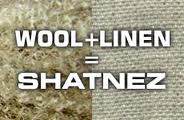Approximately twenty-five years ago shortly before “Pesach” 5738 Mr. A. J. Levin, a vice president of the Orthodox Jewish Council, began publishing Kashrus Kurrents. In that first issue, printed on the familiar yellow paper with the blue Kashrus Kurrents logo, it was deemed necessary to advise the Baltimore community that they cannot rely on labels or advertisements that merely states ‘Kosher for Passover’. From that same issue we learned that the fledgling Star-K organization had just inaugurated its kosher hot-line whereby one could get accurate kashrus information Monday through Thursday between the hours of 10 a.m. to 12 p.m.
A most welcome and popular feature was a list of items that did not require special Passover certification. Included were specific brands of sugar and cocoa as well as a number of commonly used over the counter medications. Compiling the list required substantial research by volunteers […]






 STAR-D
STAR-D STAR-S
STAR-S